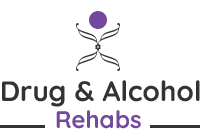Cognitive Behavioral Therapy
WRITTEN BY CAYLA CLARK, BA – NOVEMBER 23rd, 2020
Cognitive-behavioral therapy or CBT for short is a form of psychotherapy and behavioral treatment. It is administered to individuals with mental health or substance abuse disorders. A 2018 survey by the National Center for Drug Abuse Statistics (NCDAS) reveals that at least 60% of Americans older than the age of 12 are dependent on alcohol or drugs. Similarly, the National Institute of Mental Health (NIMH) puts one in five adults as having a mental health disorder. These high rates of individuals needing specific therapies for the mind create the need for treatments like CBT.
Cognitive-behavioral therapy focuses on the goal of helping individuals modify thought patterns and behavioral habits which sponsor the disorder. CBT works on the basis that human thoughts influence actions and behavior. Therefore, CBT goes for the “mind-cause” of these problems and provides safe solutions to overcome them.

Search For A Rehab Center Near You
What to Expect from Cognitive-Behavioral Therapy
For CBT sessions, the individual must first go through an assessment with the therapist to learn about the issue. It involves an analysis of the symptoms of the disorder, which will help to frame the content of further sessions. In CBT, the recovering individual and therapist work together in setting goals and mapping wanted outcomes. The client has to participate to truly benefit. This is one quality that differentiates CBT from other therapies where clients are almost always passive recipients during treatment. Sessions involve therapist-client discussions on the thoughts and behavior which support the addiction and mental health issue. Then, the therapist gives the client helpful techniques and exercises that counter these negative thoughts and behavior. Thus, the mental root cause of the disorder is dealt with to facilitate recovery.
What Does Cognitive-Behavioral Therapy Treat?
- Anxiety disorders
- Clinical depression
- Substance use disorders
- Eating disorders
- Schizophrenia and other psychotic disorders
- Insomnia and stress
Benefits of Cognitive-Behavioral Therapy
The range of addiction and mental health issues CBT treats is diverse. These could be alcohol addiction, opiate addiction, benzodiazepines addiction, and marijuana addiction, amongst others. Mental health issues include post-traumatic stress disorder, depression, anxiety, bipolar disorder, anger management, and other similar personality disorders. Co-occurring addiction or dual diagnosis is another area where CBT proves helpful. Co-occurring addiction is the situation where an individual is diagnosed with both chemical dependence and mental ill-health. Undergoing CBT provides certain advantages to the client, some of which are:
- It allows the clients to take note of their negative thinking patterns and behaviors.
- It equips the client with the right tools to confront challenging situations more effectively.
- Therapy sessions are structured and short-term, comprising between 5 to 20 sessions.
- CBT helps individuals to develop a positive outlook on circumstances surrounding them and on personal actions and that of others.
Performing detox or any other step in a recovery plan without therapy will only yield an unstable recovery. The mind, just like the body, has to heal too for the individual to sustain sobriety. Starting on therapy might seem daunting. Many individuals fear the vulnerability that goes with the territory. However, we can help and guide you through this process. Our aim is that you safely recover and break free from addiction. Contact us today to get started on your full plan for recovery.
